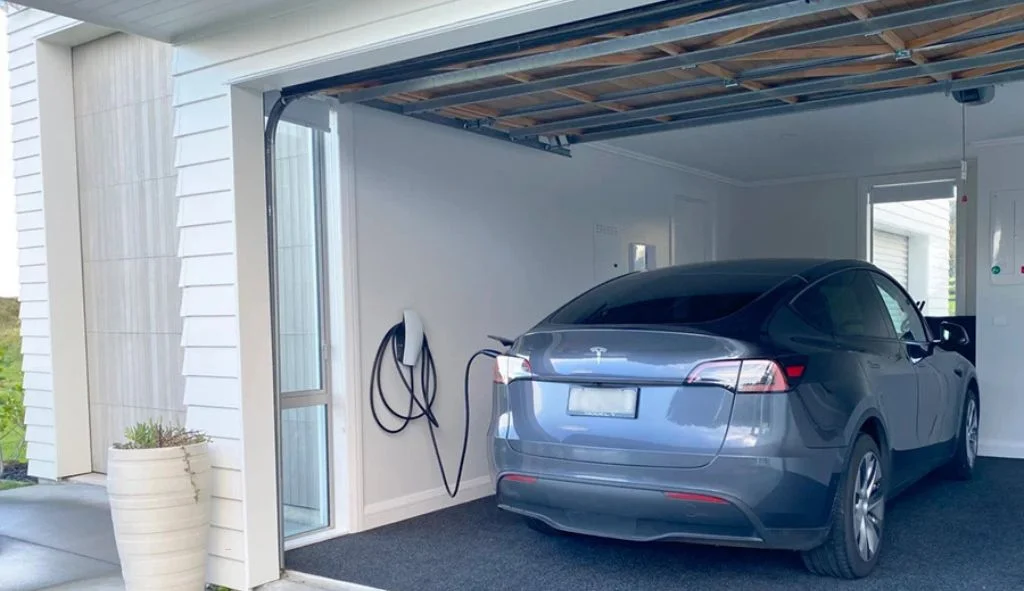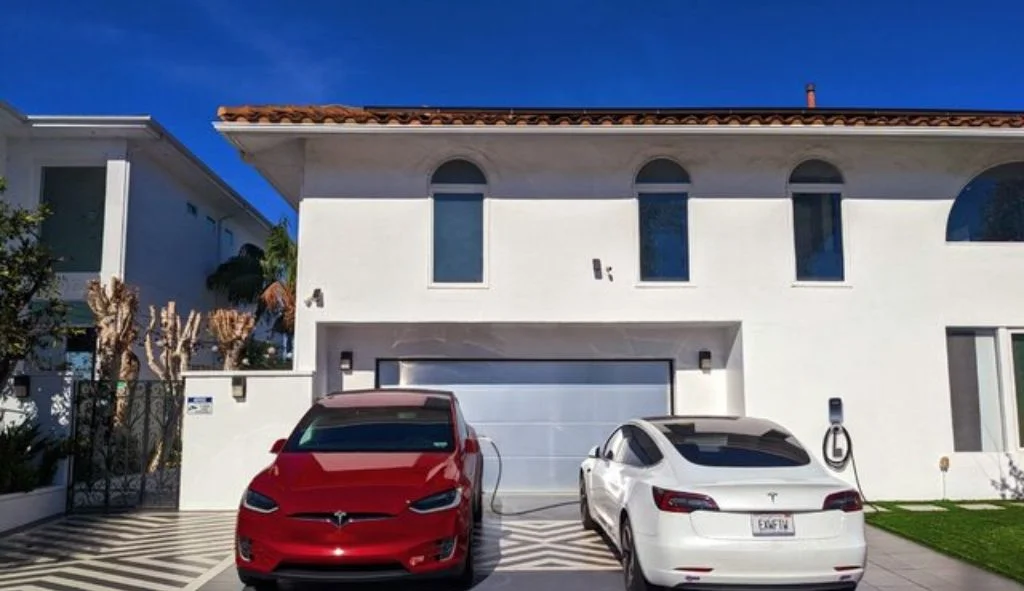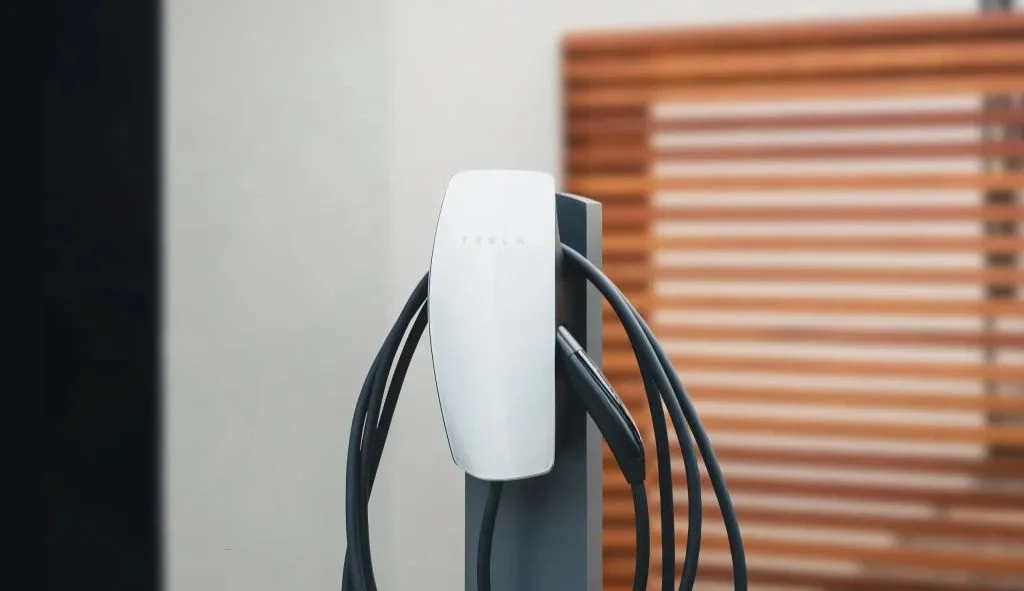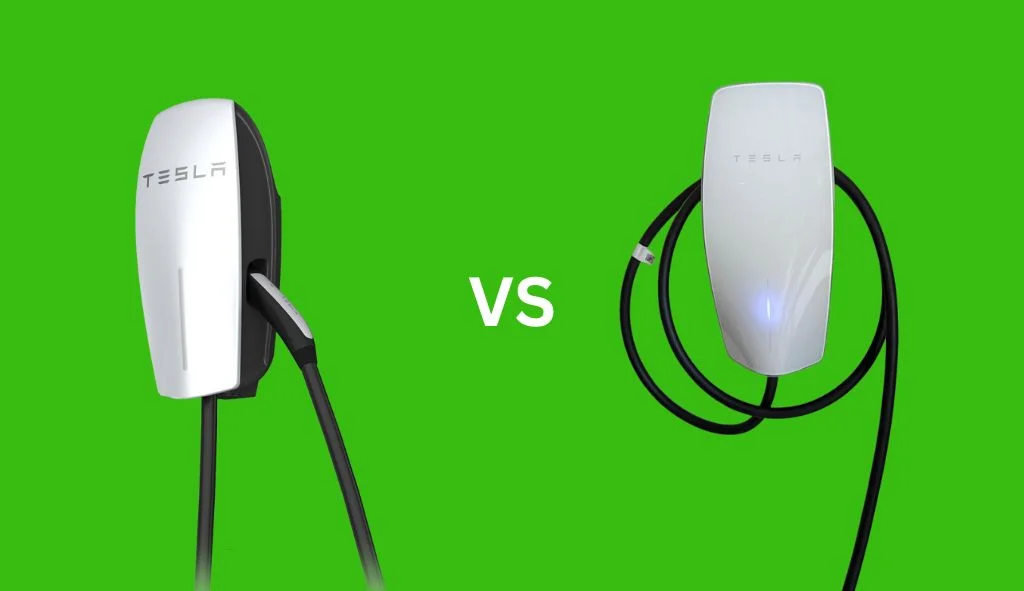Installing a Tesla Wall Charger typically costs between $500-$2,500, including the $420 unit price plus labor, wiring, and possible electrical upgrades required for your home.
The cost of installing a Tesla Wall Charger is a common concern for new and prospective Tesla owners. While the convenience of home charging is clear, understanding the full financial commitment helps with proper budgeting and planning. This comprehensive guide breaks down all aspects of Tesla Wall Charger installation costs, from equipment prices to labor expenses and everything in between.
We’ll examine the factors that affect pricing, what to expect during installation, and how to potentially reduce costs without compromising safety or quality.
Tesla Wall Charger Options and Costs
Before diving into installation costs, it’s important to understand the different Tesla charging equipment options available and their respective prices.
Wall Connector
The standard Tesla Wall Connector costs $420 and offers the fastest home charging solution for Tesla vehicles. This wall-mounted unit features:
- Up to 44 miles of range added per hour at 11.5 kW / 48 amp output
- Auto-sensing handle to open the charge port
- Wi-Fi connectivity for updates and remote diagnostics
- 24-foot cable length
- Indoor/outdoor design
- Four-year warranty for residential use
The Wall Connector is designed to be a permanent installation and requires professional installation by a licensed electrician.
Mobile Connector
Tesla’s Mobile Connector is a portable charging solution priced at $300. While less powerful than the Wall Connector, it offers flexibility for owners who need charging capabilities at different locations. Features include:
- Charging speeds of 3-30 miles per hour, depending on the outlet used
- Portability for travel or multiple charging locations
- 20-foot cable length
- Compatible with various adapters for different outlet types
The Mobile Connector can be plugged into a standard household outlet (for slow charging) or a 240V outlet (for faster charging), making it versatile but less convenient for everyday home charging.
Universal Wall Connector
For households with multiple EV brands, the Universal Wall Connector costs $550 and includes:
- Support for both NACS (Tesla) and J1772 (standard for other EVs) plug types
- Up to 44 miles of range per hour charging speed
- 24-foot cable length
- Wi-Fi connectivity and Tesla app integration
- Indoor/outdoor design
This option provides flexibility for multi-EV households but comes at a premium price compared to the standard Wall Connector.
Factors Affecting Tesla Wall Charger Installation Costs
The wide range in Tesla Wall Charger installation costs ($500-$2,500) is due to several key factors that vary from home to home.
Distance From Electrical Panel
The distance between your electrical panel and the desired charger location significantly impacts installation costs:
- Short distances (under 10 feet): Minimal wiring needed, lower material costs
- Medium distances (10-50 feet): More wiring required, moderate cost increase
- Long distances (over 50 feet): Substantial wiring needs, potentially requiring trenching for outdoor installations or routing through walls, ceilings, or crawl spaces
Based on real-world examples, a 75-foot wiring run can increase installation costs by $1,000 or more compared to a simple 5-foot run.
Electrical Capacity and Panel Upgrades
Your home’s existing electrical system may require upgrades to support a Tesla Wall Charger:
- Existing capacity check: The electrician will determine if your panel can handle the additional 60-amp circuit typically needed
- Breaker space: If your panel is full, a subpanel may be required
- Service upgrade: Homes with 100-amp service may need an upgrade to 200-amp service
These electrical upgrades can add $1,000-$3,000 to your installation costs, making them one of the largest potential expenses.
Indoor vs. Outdoor Installation
The location of your Wall Charger affects both materials and labor requirements:
- Indoor garage installation: Generally simpler and less expensive, requiring standard indoor-rated materials
- Outdoor installation: Requires weatherproof conduit, GFCI protection, and potentially trenching or specialized mounting solutions
Outdoor installations typically cost $200-$500 more than comparable indoor installations due to these additional requirements.
Labor Rates and Geographic Location
Electrician rates vary significantly by location:
- Urban areas: Higher labor rates, typically $90-$150 per hour
- Rural areas: Lower labor rates, typically $65-$100 per hour
- High-cost regions (e.g., California, New York): Premium labor rates of $150+ per hour
Most Tesla Wall Charger installations require 3-8 hours of labor, making this a variable cost of $200-$1,200 depending on complexity and location.
Permit and Inspection Requirements
Local permitting requirements add both direct costs and time:
- Permit fees: $50-$250 depending on municipality
- Inspection scheduling: May delay project completion
- Code compliance: May require additional materials or modifications
These regulatory requirements are essential for safety but add to the overall project cost.

Average Cost Breakdown for Tesla Wall Charger Installation
Understanding the typical breakdown of costs helps identify where your money goes during installation.
Equipment Costs
- Tesla Wall Connector: $420
- Circuit breaker (60-amp typical): $30-$100
- Conduit and junction boxes: $50-$150
- Wiring (6-gauge typically required): $2-$4 per foot
Labor Costs
- Basic installation (near panel): $250-$500
- Standard installation (moderate complexity): $500-$1,000
- Complex installation (panel upgrades, long runs): $1,000-$2,000
Permits and Inspections
- Electrical permit: $50-$250
- Inspection fees: Sometimes included in permit, sometimes separate
Cost Examples
- Simple installation (20 feet from panel): $800 total
- Standard installation (garage, moderate distance): $1,600 total
- Complex installation (panel upgrade, 75-foot run): $3,000-$4,100 total
A typical installation without panel upgrades averages around $1,000-$1,600, according to multiple reports and quotes.
The Tesla Wall Charger Installation Process
Understanding the installation process helps set expectations and ensures proper preparation.
Finding Qualified Installers
Tesla maintains a network of certified installers, but any licensed electrician can install a Wall Connector. Options include:
- Tesla Certified Installers: Specialized in EV charger installation
- Licensed electrical contractors: Often more widely available
- Electricians recommended by other Tesla owners
Getting multiple quotes is highly recommended, as prices can vary by $1,000 or more for identical work.
Pre-Installation Assessment
Before installation day, a qualified electrician should:
- Evaluate your electrical panel capacity
- Measure the distance to your desired charger location
- Identify any potential obstacles or special requirements
- Determine the best route for wiring
- Provide a detailed quote with all costs itemized
This assessment is often free or included in the installation price.
Installation Day Expectations
A typical Tesla Wall Charger installation includes:
- Electrician arrival and final planning
- Installation of a dedicated circuit breaker
- Running of appropriately sized wiring
- Mounting of the Wall Connector
- Connections and testing
- Basic operation instructions
Most installations take 3-6 hours, depending on complexity.
Post-Installation Inspection
After installation, an electrical inspector will typically:
- Verify code compliance
- Check wiring and connections
- Confirm proper grounding
- Issue final approval
This inspection ensures safety and compliance with local regulations.
Potential Cost-Saving Strategies
While professional installation is necessary, there are ways to reduce costs without compromising safety.
Strategic Placement
Placing your Wall Connector closer to your electrical panel can significantly reduce costs:
- Under 10 feet from panel: Minimal wiring costs
- Each additional 10 feet: Approximately $50-$100 in additional materials and labor
Planning your charger location with wiring distance in mind can save hundreds of dollars.
Timing with Other Electrical Work
Combining Wall Charger installation with other electrical projects can reduce costs:
- Home renovations with exposed walls
- Panel upgrades for other reasons
- Other electrical improvements
This approach shares travel time, permit costs, and setup/cleanup time.
Rebates and Incentives
Many utility companies and government programs offer incentives:
- Utility rebates: $100-$500 for EV charger installation
- Tax credits: Some states offer tax incentives
- Special EV electricity rates: Reduced rates for off-peak charging
These programs can offset installation costs substantially.
Other Important Considerations
Beyond the initial installation costs, several factors affect the overall value and experience.
Hardwired vs. Plug-In Installation
Tesla Wall Connectors can be installed in two ways:
- Hardwired: Directly connected to your electrical system; required for installations over 40 amps
- Plug-in: Connected to a NEMA 14-50 or similar outlet; simpler to install but limited to 40 amps maximum
Hardwired installations typically cost $100-$200 more but offer higher charging speeds and greater safety for permanent installations.
Future-Proofing Considerations
When installing a Tesla Wall Charger, consider future needs:
- Installing conduit large enough for future upgrades
- Planning for multiple chargers if considering additional EVs
- Choosing locations that can serve future vehicles
These considerations may increase initial costs slightly but save money in the long run.
Ongoing Operating Costs
The cost to charge your Tesla at home typically ranges from $70-$100 per month, depending on:
- Local electricity rates
- Driving habits
- Vehicle model and efficiency
- Time-of-use rate plans
Home charging remains substantially cheaper than gasoline or public charging options.

Benefits of Installing a Tesla Wall Charger
Understanding the benefits helps justify the installation costs for many owners.
Convenience and Time Savings
- Always start each day with a full charge
- No time spent at public charging stations
- Charging happens while you sleep
Higher Charging Speeds
- Wall Connector: Up to 44 miles of range per hour
- Standard outlet: Only 3-5 miles of range per hour
- NEMA 14-50 outlet: Up to 30 miles of range per hour
These faster speeds mean a Tesla Model Y can charge from empty to full overnight, rather than taking days with a standard outlet.
Smart Features
Tesla Wall Connectors offer advantages over basic outlets:
- Wi-Fi connectivity for remote monitoring
- Charging schedule management through the Tesla app
- Automatic updates and diagnostics
- Power sharing between multiple connectors
Home Value Increase
A permanently installed EV charger can increase home value:
- Adds appeal for future EV-owning buyers
- Represents a turnkey solution for EV charging
- Increasingly viewed as a desirable home feature
Frequently Asked Questions
Can I install a Tesla Wall Charger myself?
No, Tesla Wall Charger installation requires a licensed electrician. DIY installation voids the warranty and creates safety hazards. The high-voltage, high-amperage circuit needed presents significant risks if installed incorrectly.
How long does a Tesla Wall Charger installation take?
Most installations take 3-6 hours for a single day installation. Complex installations with panel upgrades may require 1-2 days. Permit approval and inspection scheduling can add days or weeks to the overall timeline.
Do I need to upgrade my electrical panel for a Tesla Wall Charger?
Not necessarily. Homes with 200-amp service and available breaker space can typically accommodate a Wall Charger without upgrades. Your electrician will perform a load calculation to determine if your panel can handle the additional load.
Can I use a Tesla Wall Charger with non-Tesla electric vehicles?
The standard Tesla Wall Connector works only with Tesla vehicles. For non-Tesla EVs, Tesla offers the Universal Wall Connector ($550) which includes both NACS and J1772 connectors for all EV types. Alternatively, adapters are available for the standard Wall Connector.
Are there rebates available for Tesla Wall Charger installation?
Yes, many utility companies offer rebates of $100-$500 for home EV charger installation. Some states also offer tax incentives. Check with your utility company and local government for available programs in your area.
What’s the difference between a Wall Connector and a NEMA 14-50 outlet?
A NEMA 14-50 outlet allows you to plug in the Mobile Connector for charging at up to 30 miles of range per hour. The Wall Connector is a permanent installation that enables faster charging (up to 44 miles per hour) and offers smart features through Wi-Fi connectivity.


